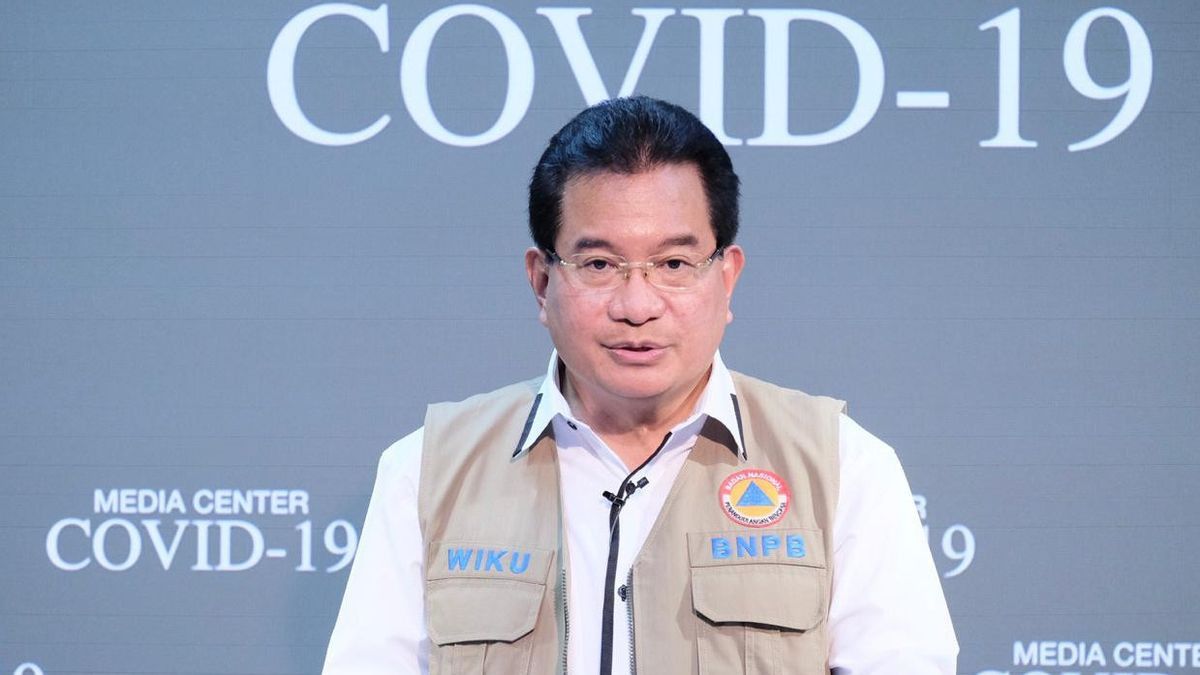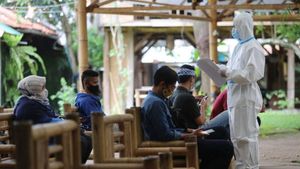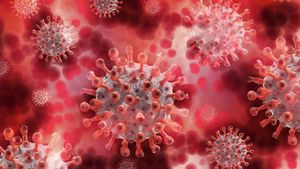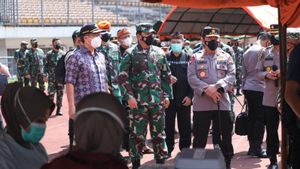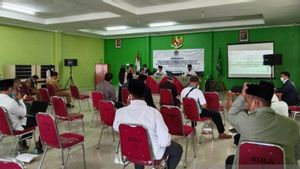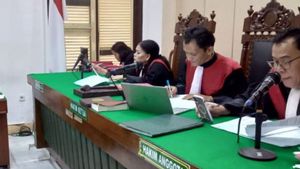JAKARTA - Indonesia is again facing a surge in COVID-19 cases after a long holiday, namely Eid al-Fitr yesterday. In fact, the spike in cases four weeks after Eid 2021 is higher than Eid 2020.
It was recorded that there was a 38.3% surge in positive cases of COVID-19 compared to the previous week. This is a very significant increase. DKI Jakarta is the area with the highest increase in positive cases, with 7,132 cases in a week.
The spokesperson for the COVID-19 Task Force gave a message that the spike in cases after the long holiday proves that the transmission of the virus does not recognize the word holiday.
"We all understand that the pandemic period is not easy. Many have been affected. It is not only a matter of health and illness but also touching other interests", said Wiku in a BNPB Indonesia Youtube show, quoted on Friday, June 18.
The government has indeed made various efforts to handle the pandemic, both tracing, checking, and treating COVID-19. However, it is not enough. Therefore, Wiku said that the community must also be able to adapt to get used to the application of health protocols.
SEE ALSO:
Because, Wiku saw that since the beginning of the pandemic in Indonesia, community cohesiveness in carrying out efforts to prevent COVID-19 had not been fully formed. Then, knowledge related to this is still very minimal. This eventually resulted in an increase in positive cases and the depletion of health service capacity.
"There is no other way to get out of the pandemic but we can adapt to new habits on an ongoing basis", said Wiku.
Wiku said, in principle, efforts to prevent infectious diseases such as COVID-19 are multiplicative. Every single case that is prevented can play a major role in suppressing the spread of transmission.
Therefore, preventive measures that can be taken by the community are consistently implementing the 3M protocol, avoiding crowds, delaying travel that is not too urgent.
Meanwhile, local governments must also make vaccinations active, especially for at-risk populations, and improve the management of health services and the work system of their health workers.
"It should be understood that good prevention efforts must be carried out consistently, regardless of time. As long as the COVID-19 pandemic has not ended, preventive efforts must continue because the chance of transmission still exists", he concluded.
The English, Chinese, Japanese, Arabic, and French versions are automatically generated by the AI. So there may still be inaccuracies in translating, please always see Indonesian as our main language. (system supported by DigitalSiber.id)
